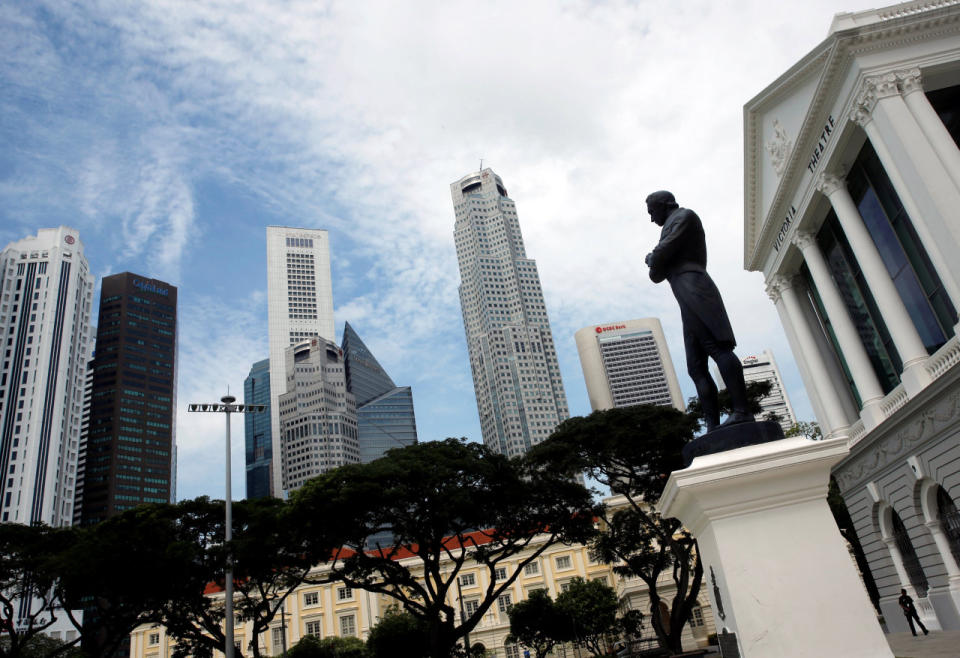COMMENT: Gahmen, don’t like that leh

Wah lau. Just when I thought it was safe to speak Singlish, the gahmen came along to remind us that it is a literal threat to our survival.
Many will have seen Monday’s (23 May) letter to The New York Times by Chang Li Lin, press secretary to Prime Minister Lee Hsien Loong. Responding to academic Gwee Li Sui’s op-ed celebrating the role of Singlish in our society, Chang chastised him for “making light” of the government’s efforts to promote the mastery of standard English by Singaporeans.
Chang’s arguments are not new: Singlish undermines standard English, it makes it harder for Singaporeans to compete in the world economy, not everyone can code switch between Singlish and proper English. Curiously, Chang seemed to suggest that it requires a PhD to do the latter, which leaves millions of Singaporeans like me out in the cold.
She even brought up the most terrifying spectre of all: Foreigners will not be able to understand us. Perhaps Chang has a point. To paraphrase Manpower Minister Lim Swee Say, we should all strive for the better-est standard of English.
Given her role, Chang was presumably speaking on behalf of PM Lee, and by extension, the government. The letter has revived an age-old, soul-searching debate about whether we should embrace Singlish, or dump it in the longkang like so much used tissue paper.
Contradictory policies
It’s the latest chapter in what has often been a confused and contradictory policy towards Singlish, all in the shadow of the 16-year-old Speak Good English Movement. In recent years, it seemed that authorities had grudgingly accepted that Singlish was here to stay, and even embraced it.
A speech that PM Lee gave to new citizens at a citizenship ceremony back in 2014 has been circulating online. He urged those present to “pick up Singaporean customs, lifestyles, norms, social rules”. He added, “And if you can understand ‘Singlish’, so much the better!”
While covering last year’s National Day Parade, I also witnessed the People’s Association’s mass display, which included giant floats with Singlish words and phrases like “Blur like sotong” and “lah”.
But Chang’s humourless letter reflected an official discomfort with the language that has always been there. It recalled the days when former Prime Minister Goh Chok Tong said popular sitcom character Phua Chua Kang was a bad influence on students trying to learn proper English.
The validation of Singlish

Is Singlish putting Singapore on the map? Photo: Edgar Su/Reuters
Maybe it has to do with the recent inclusion of 19 Singlish words in the Oxford English Dictionary. Perhaps they were also uncomfortable with Gwee Li Sui’s commentary being published in a major Western publication. Such validation of a language that has been dismissed by some as ‘not a language’ must be deeply disturbing.
But the inherent contradictions in the ruling party’s language policies have sometimes come back to haunt it.
For example, during last year’s general election, Bishan-Toa Payoh GRC candidate Chee Hong Tat found himself having to explain a 2009 Straits Forum letter that called the learning of Chinese dialects “stupid”. It was also penned in response to an academic, who had lamented that many young children not speak dialects.
Writing in his capacity as Principal Private Secretary to the late Lee Kuan Yew, Chee laid out equally pragmatic reasons for emphasising Mandarin instead, writing, “This is the common language of the 1.3 billion people in China. To engage China, overseas Chinese and foreigners are learning Mandarin and not the dialects of the different Chinese provinces….This is why we have discouraged the use of dialects. It interferes with the learning of Mandarin and English.”
Chee clarified that the use of dialect in private is acceptable and a useful tool for communicating with the elderly, while reiterating that dialects should not be taught in schools. Now a Minister of State, he has even taken to performing songs in Hokkien at events such as the River Hongbao.
Perhaps the government simply needs to make up its mind about how it wants to deal with Singlish, and other languages it is not comfortable with.
In the meantime: Relak lah.


